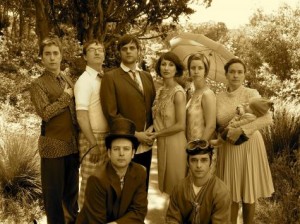
Michael Zapruder’s latest album Dragon Chinese Cocktail Horoscope is a masterfully fabricated journey in artistry and experimentation for a solo artist. Already becoming an artist with quite the legacy, he was able to take some questions from Driven Far Off about his album and his career (past, present and future).
Purchase his latest album on iTunes and at the Sidecho Records Store.
Also check out his latest video for “Ad’s For Feeling’s” here.
How did the 52 songs project benefit you? did it help you become a better lyricist having to write a new song each week?
I hope so. 52 Songs was a learning experience for me all around. I spent lots of time in the studio, for example, and I learned to be pretty comfy in that environment. There were lots of specific things like that that I got just from the amount of work I was doing. But the main benefits were really all fundamental. Basically I got to indulge in a lot of ideas that I was curious about but which ultimately were probably trivial. I got to get all my juvenilia out of my system. I got my ya-yas out, and that helped me to approach things more simply and directly, which is a good thing for music and lyrics both.
What was the intended message on Dragon Chinese Cocktail Horoscope you wanted to convey?
I went in to the project with some goals for myself and the record, but it was a method I wanted to use, rather than a message. I wanted to do a wide, diverse group of songs so that the larger group of songs might spin off interesting and unexpected kinds of associations on their own. At one point I conceptualized it as a kind of psychological cubism or something like that – different, unresolved simultaneous things that are still somehow unified. I believe that most of us experience the world that way, and I wanted to try to be true to that when I wrote and made this record. I didn’t want to oversee myself that much. As for what the record conveys, I hope there’s a mysterious and durable thread at the center of the record which people want to keep grabbing for.
During the writing process was there ever a song that ended up making Dragon Chinese Cocktail Horoscope that you immediately knew was going to be there?
There were songs that I felt sure would make one of my records, because I knew I would want to make sure to put them out; but I wasn’t attached to a particular song. Ultimately, I tried to just be realistic about which recordings seemed to be working, and to build the record from those. Of course, if we hadn’t ended up with enough usable songs after the initial session, I’m sure I would have gone back into the studio to keep trying.
How do you feel the idea of a constant stream of music in the industry today has evolved and how something like the 52 song project has moved from an outlandish experiment to a smart career move?
I may be wrong about this, but I think that quality, and not quantity, is what matters. Back when I did 52 Songs I was thinking that if I wrote a song a week for the rest of my life, it would only add up to ten thousand songs or something, and I figured that if I wrote that many, I’d have a good chance of really connecting with something special on a few dozen of them. So it was quantity as a method to get quality. I think as an artist, that’s totally valid, but as a career move, I suspect that the people who move deliberately and who focus on their strengths and who avoid certain creative detours tend to be more successful. Also, I think doing a 52 songs thing as a writing project is great, but adding in the necessity of turning those songs into full-on recordings is probably not the smartest thing. It’s really good to take your time with recording I think. If things happen fast, cool, but if they don’t, it’s good to keep at it until you have a version that really works.
Do you believe there is any artist/group in mainstream music today trying to redefine what they are doing and how people perceive “pop music”? or is it all disingenuous?
Yes, I think many people making records, whether they are mainstream records or indie records (although isn’t indie mainstream now?), are trying to do that. The thing is, at the highest levels, pop music really is just about what people like to listen to. So Prince’s recent forays into conceptual long form funk and jazz, or Wilco’s most recent record with its rather unassuming kind of excellence, may lose their place at the top of the heap the more they deviate from what people expect. In any case, I don’t think it’s all disingenuous at all.
Which song on Dragon Chinese Cocktail Horoscope was the hardest to finish? and why?
Writing-wise, “Can’t We Bring You Home” was hard to finish. I had a bunch of different sets of lyrics for it, and the song form, which is experimental, was hard to decide on. I wanted it to be really unusual without sounding that way, and it took a long time to figure that out. For recording, we worked a lot on “Ads for Feelings” and “Bang on a Drum.”
Listening to your album it’s ambient nature surfaces throughout, do you think more ambient music is overlooked in an industry that values an in-your-face sound?
Well, I’m glad you picked up on that part of the record. Scott Solter and I wanted to use sort of ambient landscapes to make the songs seem finished even if the instrumentation was pretty light. As for whether ambient music is overlooked, I think it’s more that it’s designed to be peripheral. When Eno was in the hospital dreaming it up, the idea was, I’m pretty sure, to make music that would accompany people in their activities without demanding their full attention. So yes I think ambient music is overlooked, but I don’t think it’s the industry’s fault. I think we can all blame Brian Eno for that….
Where would you like to take your music in future releases? Where do you see yourself going artistically?
I’m working on some experimental pop free verse songs that I wrote using as lyrics poems by twenty published mid-career American poets. I love these pieces and expect that to come out sometime within the next year. I’m halfway through recording them. The next record of my own songs is probably going to be more oriented towards directness and energy and a band sound, but no matter what it will be more focused on content than formal experiments. I’ve even considered setting a limit for myself to make a record where none of the songs is slower than 120 bpm. We’ll see about that. In any case, I’d like to make a record that is playable in a live setting, and that is invigorating and cathartic for one and all. And, since I grew up listening to my dad play finger-picking guitar and singing songs, and since I’ve been listening to a lot of Sybll Baier lately, I want to try to record some really mellow stuff like that too.
Is there a certain lyric or a certain song that is especially important or sentimental for you on Dragon Chinese Cocktail Horoscope?
I do like the lyrics on the record a lot. I worked on them for a long time. I’d say the line about staggering out in a horrible speedo always feels somehow relevant to me when I perform it. I also like parts of “Black Wine” a lot. “Harbor Saints” also feels pretty honest and interesting to me. I hope it does for other people too.
In your own opinion what is more important: variety or consistency? Is the risk of alienating fans or failing worth the pursuit of a higher level of art?
I think it’s a balance, and one that I probably don’t really do too well. Ultimately, consistency builds careers, but variety sustains artists, so having a good mix of both seems like the best thing. As for the second question, I’m not sure what a higher level of art is, but I think I do know what its pursuit is like, and yes, I absolutely think it’s worth the risk of alienating fans or failing or whatever else. Perhaps there is a reason why people call creativity a gift (it’s one that I believe we all have, by the way). There is something incredibly fortunate and great about people working, searching for a song or painting or film or anything else, looking for new ways to articulate what it feels like to be alive, what’s important, what should be important, and stuff like that. If you have that in your work, you really have the real thing. The reaction, whether you’re collecting roses thrown on the stage or raking up tumbleweeds on an apocalyptic wasteland, comes after the fact.
Thanks to Michael and Noel from SideCho for helping put this interview together.
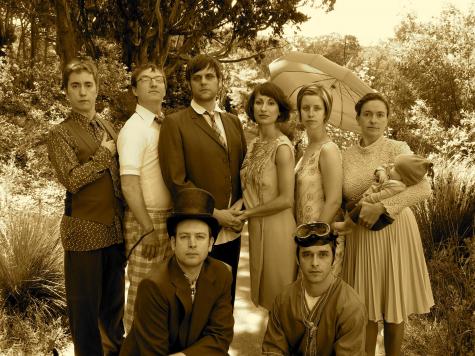
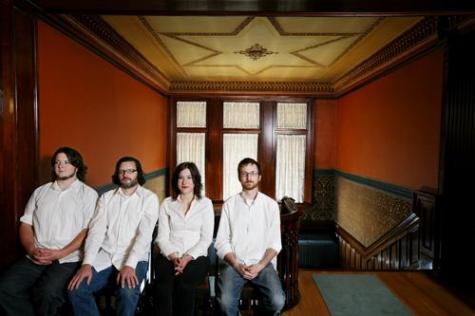
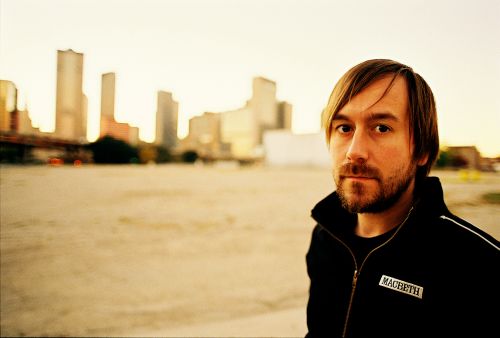
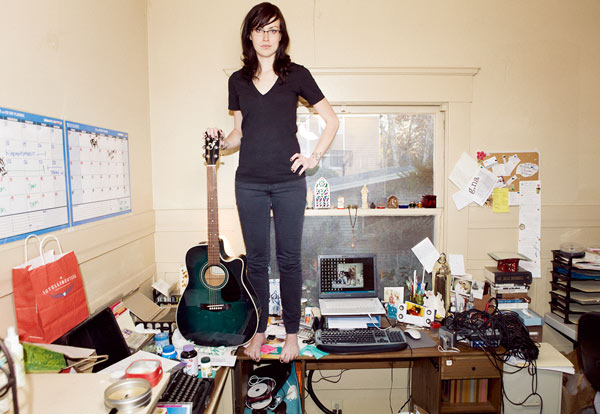
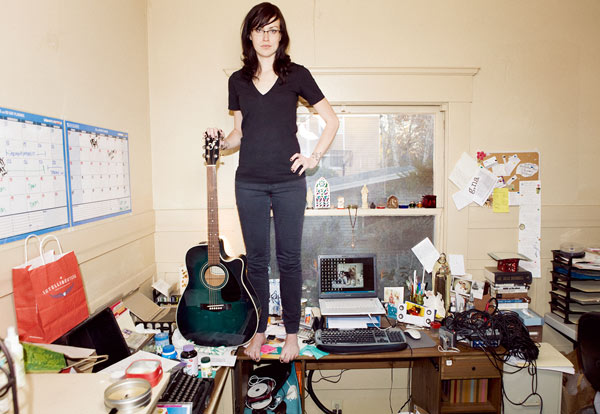
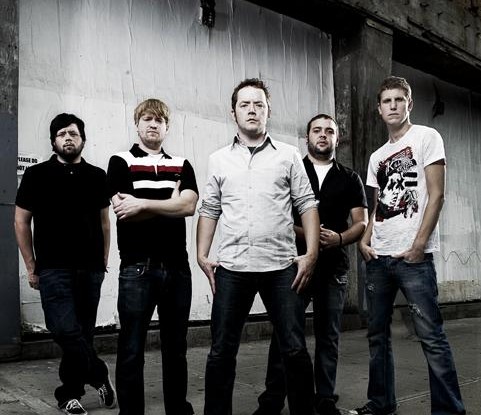
 These Green Eyes’ music is filled with loud, energized guitars and lyrics with hints of punk rock here and there. They have had the opportunity to share the stage with bands like New Found Glory and The Higher, and are quickly gaining recognition within the alternative music scene. Check out what Greg has to say about These Green Eyes music and their new album, Relapse To Recovery, that hits stores in March.
These Green Eyes’ music is filled with loud, energized guitars and lyrics with hints of punk rock here and there. They have had the opportunity to share the stage with bands like New Found Glory and The Higher, and are quickly gaining recognition within the alternative music scene. Check out what Greg has to say about These Green Eyes music and their new album, Relapse To Recovery, that hits stores in March. 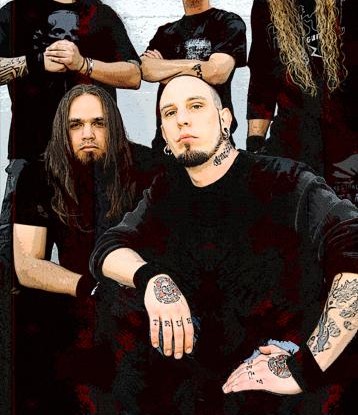
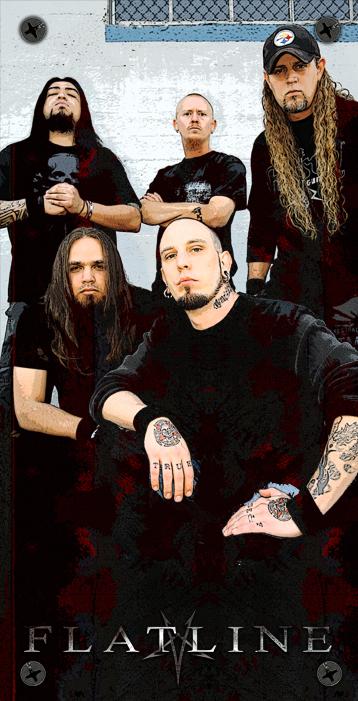
 Ilan Rubin has been very busy in the past few years. Not only is he involved with The Lostprophets, he began a side project entitled The New Regime in which he was involved in every musical aspect of the album. At the same time, Rubin will enter as the drummer for Nine Inch Nails. I recently had the chance to talk with Rubin about his new record “Coup” from side project The New Regime and his career as a musician.
Ilan Rubin has been very busy in the past few years. Not only is he involved with The Lostprophets, he began a side project entitled The New Regime in which he was involved in every musical aspect of the album. At the same time, Rubin will enter as the drummer for Nine Inch Nails. I recently had the chance to talk with Rubin about his new record “Coup” from side project The New Regime and his career as a musician.

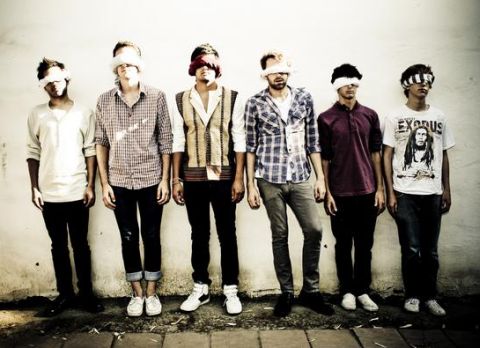 In a time where cookie-cutter Indie bands are popping up quicker than hives, Young the Giant (formerly known as The Jakes) provide the cure to long lost uniqueness. This young band somehow manages to take all necessary elements of music and spin them into a refreshing new tale through their lyrics and melodies. I was fortunate enough to chat with lead singer, Sameer Gadhia, and ask him a few questions on Young the Giant history and future.
In a time where cookie-cutter Indie bands are popping up quicker than hives, Young the Giant (formerly known as The Jakes) provide the cure to long lost uniqueness. This young band somehow manages to take all necessary elements of music and spin them into a refreshing new tale through their lyrics and melodies. I was fortunate enough to chat with lead singer, Sameer Gadhia, and ask him a few questions on Young the Giant history and future.
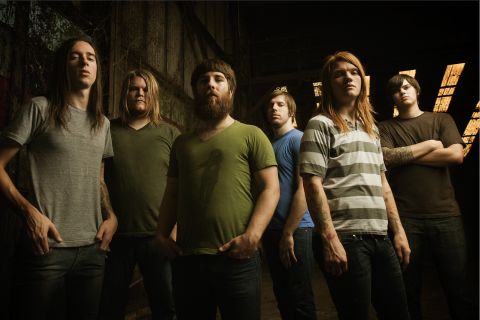 After coming off of their world tour, Underoath had every right to be exhausted and dread more interviews. This was not the case, however, and the band willingly lent the down-to-earth Christopher Dudley, keyboardist, to Driven Far Off to answer our questions. Fans from across the country were also able to submit their questions, and Christopher graciously answered a few of them at Pipeline Cafe in Honolulu, HI.
After coming off of their world tour, Underoath had every right to be exhausted and dread more interviews. This was not the case, however, and the band willingly lent the down-to-earth Christopher Dudley, keyboardist, to Driven Far Off to answer our questions. Fans from across the country were also able to submit their questions, and Christopher graciously answered a few of them at Pipeline Cafe in Honolulu, HI.